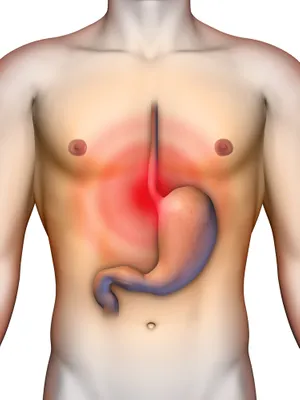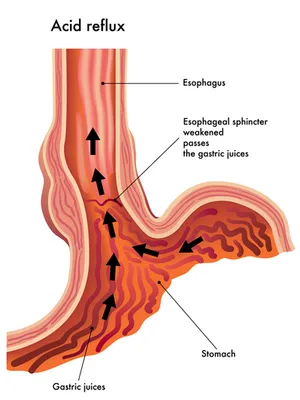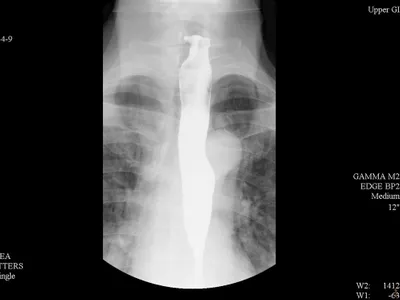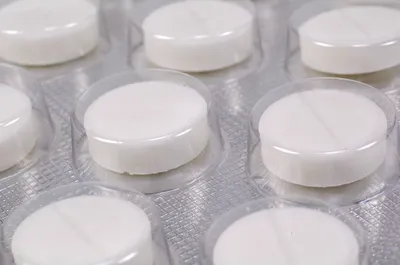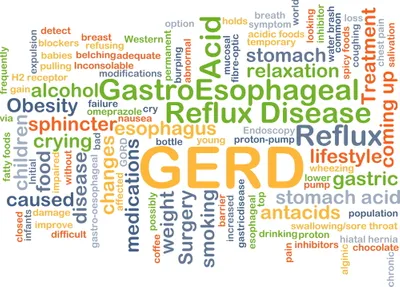GERD, or gastroesophageal reflux disease, is a serious digestive disease that emerges when stomach acid—or even stomach content—makes its way back up into the esophagus. This action can result in the irritation of the lining of the esophagus and cause significant discomfort for the patient.
It’s important to note that not everyone who experiences occasional acid reflux or heartburn has GERD. However, anyone who experiences these conditions on a regular basis should talk to their doctor about the possibility that they have this disease. The good news is that it can be managed with lifestyle changes and medication. Here’s what you need to know about GERD…
1. Symptoms
There are a range of symptoms when it comes to gastroesophageal reflux disease (GERD). The first is a stinging or burning feeling deep in the chest, somewhere between the stomach and the throat. Because this pain is often felt in the chest, some people may confuse the issue with a heart problem.
Other symptoms of GERD include difficulty swallowing, a constant dry cough, sore throat, the regurgitation of food, even the feeling that a strange lump is in the throat. If you experience these symptoms on a regular basis, then be sure to speak with your doctor.
2. GERD Causes
GERD is caused by frequent acid reflux, which involves stomach acid or even contents backing up into the esophagus. In people without GERD, the sphincter that connects the esophagus with the stomach opens and closes as food or drink makes its way down.
But in cases of GERD, this action is often disrupted, meaning the sphincter does not close properly and allows stomach contents to go up into the esophagus. This can cause inflammation of the esophagus lining and result in serious pain, making even regular activities difficult for the patient.
3. GERD Risk Factors
There are a number of diet, exercise and general lifestyle choices that can contribute to the development of gastroesophageal reflux disease (GERD). These same choices can cause many other health problems.
Specifically, people who are obese or who smoke regularly may be more likely to suffer from GERD. The condition is also more prevalent in people with diabetes, asthma, or those with serious connective tissue disorders. Pregnant women may also be at greater risk of getting GERD. To determine your risk of developing GERD, talk to your doctor.
4. GERD Diagnosis
There are a number of ways to test for and diagnose gastroesophageal reflux disease (GERD). The first is to monitor for symptoms, starting with frequent bouts of acid reflux, sore throat, chest pain and difficulty swallowing.
Second, your doctor can carry out a test that monitors the amount of acid in your esophagus. Should this show signs of GERD, your physician may also conduct an x-ray of the upper digestive system, which has the potential of further revealing GERD. Finally, your doctor may conduct a test that can show if the esophagus is moving—a possible sign of GERD.
5. Over-the-Counter GERD Treatments
In cases where gastroesophageal reflux disease (GERD) is not as serious—meaning it does not disrupt the daily functioning of the patient—doctors may prescribe over the counter medications.
This often includes antacids that are designed to neutralize stomach acid and prevent it from causing serious irritation of the lining of the esophagus. Examples include Maalox, Mylanta, Gaviscon and Tums. However, these over the counter medications are designed to provide only temporary relief. Should the patient continue to struggle with GERD, they may need to try prescription drugs.
6. Prescription Drugs for GERD
If diet changes and over the counter medications fail to adequately treat a patient’s gastroesophageal reflux disease (GERD), a physician may prescribe prescription drugs designed to provide longer and more sustainable relief from the condition.
Many of these prescription medications are intended to reduce acid production. Called H-2 receptor blockers, they often act slower than antacids but provide relief over a much longer period of time. In some cases they can give a GERD patient relief for half a day. Other prescription medications can block acid product and help limit irritation of the lining of the esophagus.
7. Lifestyle Changes for GERD Patients
Regardless of the severity of a gastroesophageal reflux disease (GERD) diagnosis, a doctor is likely to recommend the patient make significant lifestyle changes. Together, these changes can help alleviate the symptoms associated with GERD and may limit the need for over the counter or prescription medications.
Some of these lifestyle changes include losing weight and maintaining a healthy body weight; avoiding foods and drinks that cause heartburn and indigestion; eating smaller meals; quitting smoking; and being more physically active.

